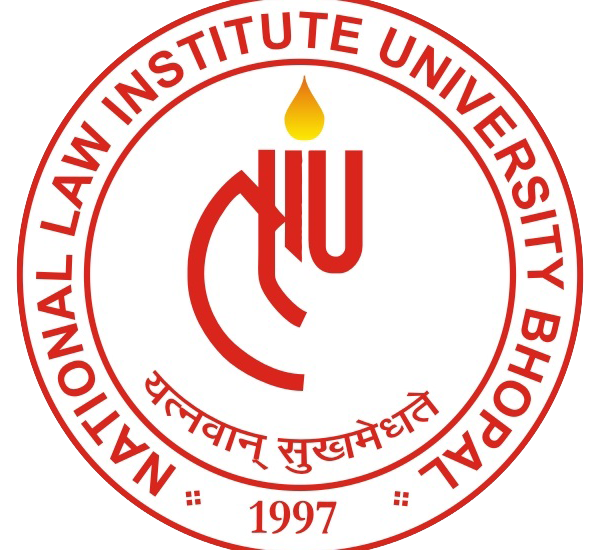What Is NLIU Journal for Labour and Employment Law (NLIU-JLEL)?
The Journal of Labour and Employment Law (JLEL) is a flagship publication aimed at fostering a critical and constructive dialogue on the development and application of laws that govern workplaces. By providing a platform for rigorous scholarly research, practical insights, and diverse perspectives, JLEL seeks to advance the understanding and practice of labour and employment law in India and beyond. With a strong commitment to social justice and equality, JLEL encourages interdisciplinary and intersectional approaches to address the complex challenges facing workers and employers today. Through its annual publication and related events, JLEL engages with legal practitioners, policymakers, academics, and students to facilitate meaningful debate and discourse and to promote a fair and equitable regime of laws that promote decent work and respect for workers’ rights.
Theme for the Volume III of the journal shall be “Contemporary Developments and Trends in Labour and Employment Laws: Analysis and Implications ”. The Journal seeks to explore the latest developments and trends in labour and employment laws, and to analyze their implications on society, economy, and governance. This theme invites papers that analyze the legal framework of labour and employment, the role of social and political actors in shaping workplace regulations, the impact of emerging technologies on labour relations, and the intersectionality of labour laws with human rights, gender, race, and other dimensions of social identity.
What Are The Details Of The Opportunity?
- Theme: Contemporary Developments and Trends in Labour and Employment Laws: Analysis and Implications
- Categories of submission:
- Articles (4000 to 8000 words) The article must be a comprehensive and in depth analysis of the problem(s) or idea(s) dealt with by the author and should include references to a range of sources and contributions in the form of alternatives and suggestions. The word limit is exclusive of footnotes.
- Essays and Short Articles (2000 to 4000 words) The essay must be an analysis of the problem(s) or idea(s) dealt with by the author and should include references to a range of sources and contributions in the form of alternatives and suggestions. The word limit is exclusive of footnotes.
- Case Comment (2500 to 5000 words) The comment must be a critical analysis of a recent judgement, bringing out its relevance in light of development of laws, views expressed in the judgement and views of the author(s). The word limit is exclusive of footnotes.
- Book Review (1500 to 3000 words) The review must be a crisp account of a recently published book including the issues explored and the related arguments of the author. The word limit is exclusive of footnotes.
- Legislative Comment (2000 to 4000 words) The comment must analyse a recent legislative enactment. It must examine the objective of the legislation and the legal impact the same is expected to have. The word limit is exclusive of footnotes.
- Last date of submission: 7th May 2023
- Registration form: CLICK HERE to register and submit the research papers
- Sub-Themes: The sub-themes of the Journal include (but are not limited to):
- “Gender and Employment Law: Towards Equality and Inclusion.”
- “Labour Law and Environmental Sustainability: Intersections and Challenges.”
- “Migration of Labour and the Protection of Migrant Workers’ Rights.”
- “The Future of Work and the Role of Employment Law in a Digital Economy.”
- “Intersectionality and Labour Law: Addressing Multiple Forms of Discrimination.”
- “The Gig Economy and the Precarious Nature of Work: Legal and Policy Implications.”
- “Collective Bargaining and the Role of Trade Unions in the 21st Century.”
- “Challenges in Enforcement of Labour Law: Access to justice.”
- “Labour Law and Social Protection for Informal Sector Workers.”
- “Labour Law and Health and Safety in the Workplace.”
- “The Role of Corporate Social Responsibility in Labour Law Compliance.”
- “Labour Law and Human Rights: A Converging Agenda.”
- “Globalization and the Harmonization of Labour Standards.”
- “Labour Law and the Right to Strike: Balancing Workers’ Rights and Public Interest.”
- “The Impact of Artificial Intelligence and Robotics on Labour Law.”
- “The Interplay between Labour Law and Economic Development.”
- “Labour Law and Indigenous Peoples’ Rights.”
- “Child Labour: Issues and Challenges in Regulation and Abolition.”
- “The Role of International conventions on formulation of National Labour Policies.”
- “Skill India and Labour Law: Bridging the Gap between Training and Employment.”
- “Compassionate Appointments and Related Policies.”
For More Information:
In case of any query contact at jlel@nliu.ac.in or contact to Devansh Malhotra (Editor-in-chief): +91 98724 50314 (WhatsApp only) or Udhav Mittal (Managerial Head): +91 81307 34392 (WhatsApp only)
CLICK HERE For The Banner
CLICK HERE For Submission Guidelines
CLICK HERE To Visit The Website
 1043
1043

